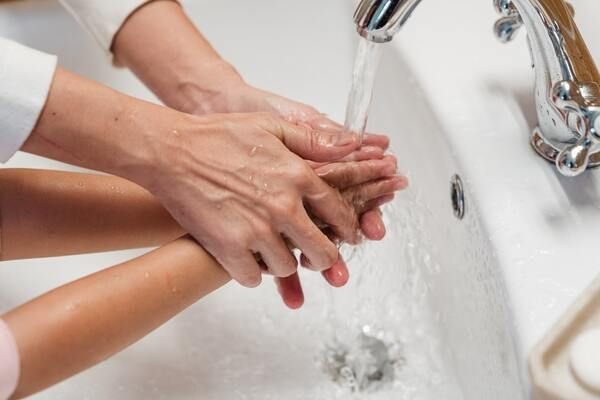
The Important of Health Education
Every year, 1.4 million children die from mostly preventable diseases such as pneumonia and diarrhea. These diseases can be prevented by a simple and direct method, which is washing hands. One can imagine the importance of children’s health education. School health education is health-centered education. Starting from early childhood, through various in-class and extra-curricular education methods, children and teenagers can acquire health knowledge, develop health behaviors, and develop health habits. This is an important aspect of children’s health work and an important part of the implementation of the education policy for comprehensive development of morality, intelligence and physical fitness.
Health education for children and adolescents is of great significance. First of all, the brain function of children and teenagers is very plasticity, strong imitation, and easy to form habits. Secondly, the popularization of health knowledge and positive factors such as school physical education, nutrition, and work and rest systems complement each other, which can enhance physical fitness, prevent diseases, and is conducive to the healthy growth of children and teenagers. Through the students’ love for cleanliness and hygiene, it plays a positive role in promoting school hygiene, family hygiene and social hygiene.
Health education should start from an early age
Health education should start from an early age, proceed step by step, and persist regularly; at the same time, the different age characteristics of students and the acceptability of teaching should be taken into account.
During the nursery and kindergarten period, emphasis should be placed on cultivating clean hygiene habits, such as washing face, hands, hair, brushing teeth, bathing, etc. Keeping hands clean is particularly important. In terms of diet, you should focus on using your own tableware correctly, eating on time, chewing slowly, not eating or eating less snacks, and not being picky or picky about food. It is also necessary to cultivate habits such as defecating regularly every day, maintaining correct posture when sitting, standing, and walking, loving sports, and being willing to receive vaccinations. After entering elementary school, in addition to consolidating the established hygiene habits, you must also develop good habits in reading, writing, sports, labor, etc., focusing on promoting eye hygiene and maintaining correct reading and writing postures to ensure good vision and prevent Abnormal curvature of the spine. As for cleaning habits, there should also be higher requirements, emphasizing washing hands before eating, after using the toilet, and after working, bathing frequently, changing clothes frequently, cutting nails frequently, etc.; keep classrooms and public places neat and clean, and do not spit or urinate anywhere. , do not throw peel confetti. Children should be educated to do good food hygiene, bring their own cups and utensils, drink sterile and clean drinking water, and eat clean food.

Health education during the period of puberty
The secondary school stage is the peak period of youth development, and children and adolescents are undergoing drastic changes in their physical, physiological, and psychological aspects. At this time, in addition to introducing necessary disease prevention knowledge, nutrition, exercise and adolescent health education should be the focus. It is necessary to carefully arrange the teaching of physiological hygiene classes, teach knowledge about sex and sexual hygiene, help them correctly deal with various physiological changes, overcome a series of contradictory phenomena in psychological development, and successfully pass through the period of puberty and development. Educate them to develop good habits of not smoking or drinking. Avoid masturbation, and do not squeeze facial acne; girls should not bind their breasts, and pay attention to menstrual hygiene – do not participate in strenuous exercise during menstruation, avoid heavy physical labor and cold stimulation, pay attention to the cleanliness of the vulva, menstrual belt, and menstrual paper, and do not take sitz baths or tub baths. Do not eat raw, cold and spicy food. For high school and college students, ideal and moral education should be provided along with health education to help them establish a revolutionary outlook on life. Promote late marriage and publicize knowledge on family planning and labor hygiene. Medical staff can use the opportunity of health examinations and disease diagnosis and treatment to provide more hygiene guidance.
To cultivate good hygiene habits in children and adolescents, we must first pay attention to methods and methods. The key points are as follows:
- Arouse interest and attention: Health education should adopt a lively education method and try to use intuitive teaching materials, such as physical objects, models, pictures, slides, TV, movies and theatrical performances, etc., to always maintain children’s high interest and attention. This leads to perceptual knowledge. For example, if a child sees an adult brushing his teeth many times, he will become interested in the small toothbrush and imitate brushing his teeth. Over time, he will develop a good habit of brushing his teeth in the morning and evening; organizing primary school students to do some cleaning activities within their ability can make children gradually notice Hygiene in public places and cultivating the concept of cleanliness and caring for the collective.
- Adults lead by example: Children will instinctively imitate the verbal behavior of adults (especially teachers and parents). Therefore, adults setting a good example for them with their own exemplary behaviors is one of the important ways to cultivate children’s hygiene habits. For example, in kindergartens, middle schools and primary schools, teachers should always keep postures correct and clothing neat; do class exercises and eye exercises carefully with students; check themselves before checking students’ cleanliness, etc. In order to prevent teenagers from developing the bad habit of smoking, parents, teachers, and doctors should take the lead in not smoking. Adults who do not pay attention to hygiene will not only not help the development of children’s hygiene habits, but may even have the opposite effect.
- Close cooperation between school and family education: Children and teenagers spend at least 2/3 of their time living at home every day, so that the health knowledge they acquire in kindergartens and schools and the health habits they are developing can be maintained at home. Consolidation and family cooperation and supervision are very important. Schools must promptly notify parents of the specific requirements for daily life system arrangements and the cultivation of hygienic habits, strive for cooperation, and obtain necessary material support. For example, parents are required to prepare towels and teacups for them, provide good lighting conditions, urge them to wash their hands before meals and after using the toilet, maintain correct posture when doing homework, and ensure sleeping hours, etc.



